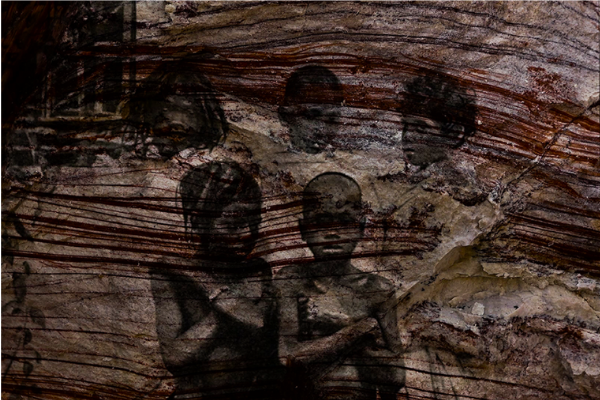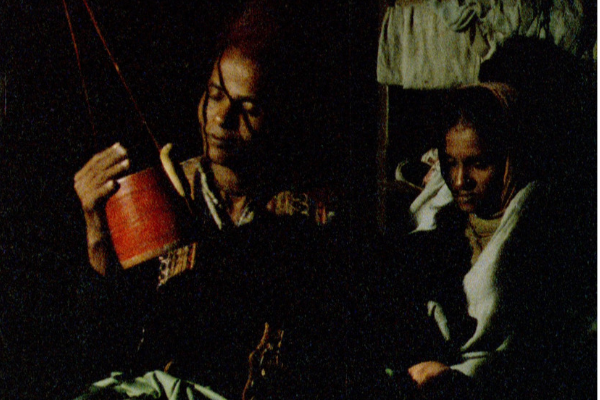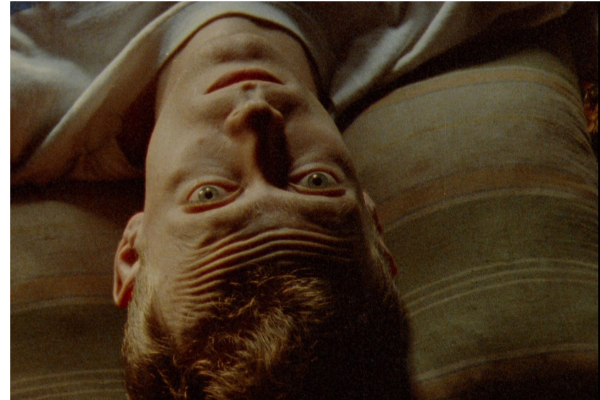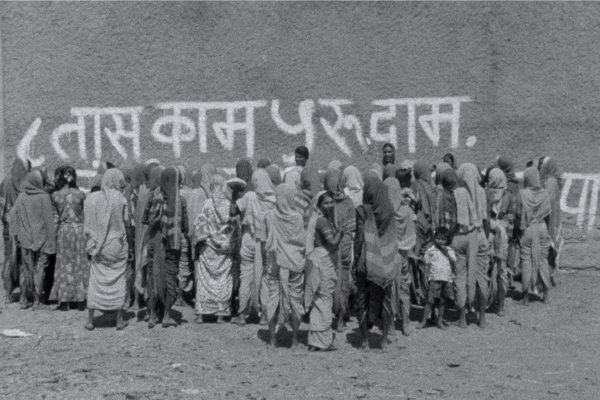Indian Premieres at Berlinale 2019 ~
The Berlinale ( Berlin International Film Festival ) brings the big stars of international cinema to Berlin and discovers new talents. It accompanies filmmakers of all disciplines on their paths into the spotlight and supports careers, projects, dreams and visions.
The 69th Edition of Berlinale starts from 7th to 17th February 2019 and presents the following Indian premieres at the festival.
Category : Generation 14 Plus
In the atmospheric light of dusk and dawn, Rima Das portrays the lives of three friends on the threshold of adulthood. Poetic sensuality contrasts with authentic scenes of everyday life in their Indian village, where carefree youthfulness comes face to face with merciless reality. The story’s protagonist is Bulbul, whose voice fails her when she has to sing in front of people. Fear of failure and self-doubt also plague the fragile Bonny, and Suman, who does not fulfill the traditional male image. The experience of first love puts the three teenagers under the pressure of high expectations and strict moral codes. The relationship between love and suffering demands a lot of strength. Bulbul the nightingale begins to sing.

‘Bulbul Can Sing’, directed by Rima Das
Category : Berlinale Shorts

‘Rang Mahal’
This documentary portrays the Santal people, native to the north of India. It is one of the largest ethnic groups whose origins go back to India’s indigenous population. While written language is a relatively recent development for the Santal, their myths have been passed down orally over thousands of years. Therefore, each story has a different form, a different rhythm, a different colour – like the mountains and hills of the surrounding region. The men work on the mountain and later in the village, which is in the midst of preparations for the annual ritual. It takes years for a tree to grow, bear fruit and provide shade. A view of Creation and its narrative: Like the myth that stretches from Genesis to the building of the first house, the images unfold with tranquil composure and affectionate reverence.
Dust | Udita Bhargava
Category : Perspektive Deutches Kino
Udita Bhargava’s Dust starring Morten Holst and Vinay Pathak is all set for its world premiere at the festival. The film will be screened in the ‘Perspektive Deutsches Kino’ (New German Cinema) section.

Morten Holst in ‘Dust’
A man retraces the footsteps of his lost love. David embarks on a journey to the troubled heart of India, where his girlfriend Mumtaz was last seen. Her death has hit him hard. Mumtaz was a photographer. David’s only remaining clue as to how she spent her final days is one of her photos which depicts a small boy. In search of the boy, he meets the ageing, cynical Dr Sharda whom he asks for help. But before long David finds himself confronted with Sharda’s dark past – a past that Mumtaz documented in her photographs. It transpires that Sharda is the commander of a camp where boys are trained to fight the exploitative state.

‘Dust’ by Udita Bhargava
When one of the boys deserts, the collective anger of the group turns against the boy’s brother, Krishna. At the same time, Radha, a young girl fleeing violent attacks on her village, reaches the nearest town. Set against the backdrop of a left-wing uprising, Dust walks the line between the world of memory and the brief sparks of a possible future and creates a multilayered portrait of people caught up in an inhumane conflict.

Vinay Pathak in ‘Dust’
Udita is an Indian filmmaker who has previously worked on films like Danny Boyle’s Slumdog Millionaire, Lars von Trier’s Antichrist and Mira Nair’s The Migration, while Dust is her first feature film as a director.
Says Udita, “We are delighted to start our journey at the Berlinale. It feels like a homecoming for many of us, since a large part of our team is from Berlin. Also, as an Indian, I am looking forward to watching Zoya and Rima’s films and hope they too can watch mine.”

Udita Bhargava
‘Egaro Mile’ ( Eleven Miles ) | Ruchir Joshi
Category : Forum
“You say you’re a Baul, then behave like a Baul!“ as Indian singer Gaur Khepa, rockstar-like long hair, beard and attitude seemingly at odds with his sacred music, remembers being chastised. Tradition and contemporary practice of Bauls, Bengali mystic minstrels, are explored in Calcutta filmmaker and author Ruchir Joshi’s essay film.

‘Egaro Mile’ by Ruchir Joshi
Baul music, rooted in Hinduism with elements of Sufism, sings of love, desire and the struggle to find – and stay on – the path to enlightenment. In addition to passing on classical verses of 19th century saint Lalon, Bauls pepper lyrics are with references to modern life such as electricity. In the late 1980s, when Joshi began the film, the West showed increased interested in Baul music, which inevitably impacted the culture, for better or worse.
Joshi foregrounds his filmmaking process and draws upon Western thinkers such as Foucault as he follows Gaur, veteran Subot, new talent Kartik and Mira Mahanta, a rare strong female presence. He captures mesmerizing performances, everyday life and family tragedy. The film often suspends time while heightening perception and critical reflection, perhaps an equivalent to the state Baul music strives to evoke.
Category : Berlinale Special Gala
Murad is 22 and lives in Dharavi, a slum in Mumbai. His poverty-stricken Muslim family are struggling to pay for his college education so that he can later secure an office job. His father, an unskilled chauffeur, has just brought a second wife into their home, which does not exactly decrease the tensions in this five-person household. Murad seeks comfort in marijuana, in self-penned angry hip-hop, and in his secret childhood sweetheart, Safeena, a doctor’s daughter who is proud to wear her white hijab.

Ranveer and Alia in Gully Boy
When Murad accidentally meets a well-known rapper who encourages him to expand his hobby, a whole new world opens up for him. Together with his friends, he begins producing his own songs in which he raps about his problems, as well as those of his generation and his country. He also talks about what it means to be poor and Muslim in India and about the fact that here, even your dreams are colonised. As he dives deeper and deeper into the world of music, Murad’s life changes – and so does his relationship to his family and to Safeena.
Bollywood meets hip-hop in Zoya Akhtar’s colourful but socially critical story about music and love.
Category : Berlinale Special Gala

Sanya and Nawaz in ‘Photograph’ ; Directed by Ritesh Batra
Rafi works hard to stay afloat as a photographer in Mumbai. Sharing his modest accommodation with other unmarried men, he sends his money home to pay off his father’s debts and dreams of a better life. One day he takes a picture of a young woman in front of the Gateway of India – and from this moment on he can think of nothing else. Miloni is a model student attending a school for auditors and is headed for university. Theirs are two irreconcilable worlds. When Rafi’s grandmother arrives, determined to marry off her grandson, Miloni agrees to masquerade as Rafi’s girlfriend. As the two begin to meet more and more often, Rafi shows Miloni, who has led a sheltered existence, unknown facets of their city.
Ritesh Batra, who caused a sensation with his debut film The Lunchbox, returns to his hometown Mumbai for this bittersweet romance. In atmospheric images that exude a quiet charm, he almost casually depicts how social stratification divides Indian society and creates a sensitive portrait of everyday life in this megacity caught between tradition and progress.
Tales From Planet Kolkata | Ruchir Joshi
Category : Forum Expanded
Part fiction, part spoof, part essay, part documentary, the film weaves together disparate strands: a critique of western media’s construction, from the 1960s to the 1990s, of Kolkata as ‘the black hole’ and ‘the worst place in the world’; an ‘elegy’ to Deepak Majumdar, one of Kolkata’s great intellectual mavericks, a teacher and friend to Joshi and many others, who died while the film was being made; and the images and song of a patua – a traditional Bengali scroll-painter.

‘Tales from Planet Kolkata’ by Ruchir Joshi
Starting with a variation on the opening of Apocalypse Now, moving through the performance-interpretations of the scroll-painter, the filmmaker himself, and an African-American video-artist from New York, the film asks questions about one’s sense of place and belonging, about the links between memory and image, and about the permanence and transience of this thing we call ‘culture.’
While referring to the reconstruction of Kolkata in the Hollywood production of City of Joy, (the film based on Dominique Lapierre’s bestseller) or weaving a fantasy about getting Jack Nicholson to act as Majumdar in a film on the latter’s life, the film asks: can ‘the worst place in the world’ be anywhere else but in your eyes and your heart?
Tambaku Chaakila Oob Ali (Tobacco Embers) | Yugantar
Category : Forum Expanded
Tambaku Chaakila Oob Ali documents, re-enacts, and takes forward one of the largest movements of unorganized labor of its time and context, which sparked unionizing processes across India throughout the 1980s. In the spirit of mobilizing for the leftist labor and the women’s movements the Yugantar collective spent four months with female tobacco factory workers in Nipani, Karnataka in India, listening to their accounts of exploitative working conditions, discussing strategies for unionizing and steps to broaden solidarities for strike actions, and filming previously unseen circumstances inside the factories. The team followed the workers’ leads as to what, where, and how their actions should be recorded, and developed a loose script through the workers’ narratives.

‘Tambaku Chaakila Oob Ali’ by Yugantar
Yugantar’s commitment to the complexity of political friendships and how to ‘stand with’ provoked a then pioneering collaborative filmmaking practice embodied in large scale reenactments, a voice-over as pluriverse testimony, and the production of the first screen presence of working-class women ‘speaking to power’. A powerful example of a feminist third cinema, now available to be revisited and to spread its film/political energies.



